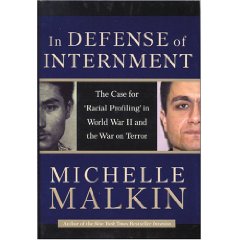Is the Obama campaign pursuing a Karl-Rove-inspired campaign strategy? This piece at the Christian Science Monitor argues yes, because Obama has opened campaign offices in Michigan college towns:
What does an office in this extremely left-leaning college town – as well as those in other “Campus and Careers” communities – have to do with the well-known Bush aide? Plenty.
In 2000 and particularly 2004, Bush won the White House by bringing
out the Republican base – driving up votes from reliably Republican
areas.Going into the 2008 race, most thought “the base” strategy was over.
Bush’s low approval numbers meant that the Republican nominee, whoever
he was, would have to run more to the center to pick up moderate voters
who had turned against the president.But on the other side of the ideological street, the Democrats are
not in such a bind, and the Obama campaign knows it. Thus, even as the
Illinois senator plays to the middle (and the middle class) in speeches
and proposals, he is devoting more effort to bringing out his base. And
if this town is any kind of example, it’s working.
Playing a GOTV strategy is hardly a Rovian innovation, however. The
reason there are campaign offices in university towns in Michigan is
because MI is (was) a swing state, and therefore every vote counts, since the candidate who wins the plurality of votes statewide will get all its electoral votes. This is campaign strategy 101, not some rare Rovian innovation.
A true Rovian strategy would be to atttack your opponents’
strengths, the classic example being how the Republicans and the Swift Boat veteran group went after John Kerry for his
military record and making light of his service and purple heart.
In the present campaign, McCain tried this Rovian approach with his short-lived ad series poking fun at Obama’s
celebrity. However, for the most part, McCain has focused on Obama’s perceived and alleged weaknesses (inexperience, character, etc) rather than strengths.
Obama hasn’t really followed the Rove game plan either, focusing more on critiquing McCain’s policies and extolling his own biography. McCain’s perceived strength is primarily his foreign policy judgement, and Obama has critiqued him on that score, pointing out that McCain’s support of the Iraq war was a diversion from the true terror threat in Afghanistan. This is more of discussion of policy differences, however, than an outright attack in Rovian fashion. If anything, McCain’s supposed advantage on foreign policy was undermined more by the fact that Obama shared the debate stage with him and was able to discuss it in articulate and knowledgeable fashion, holding his own. If Obama were truly outmatched, it would have been obvious. In one sense, McCain Roved himself.

